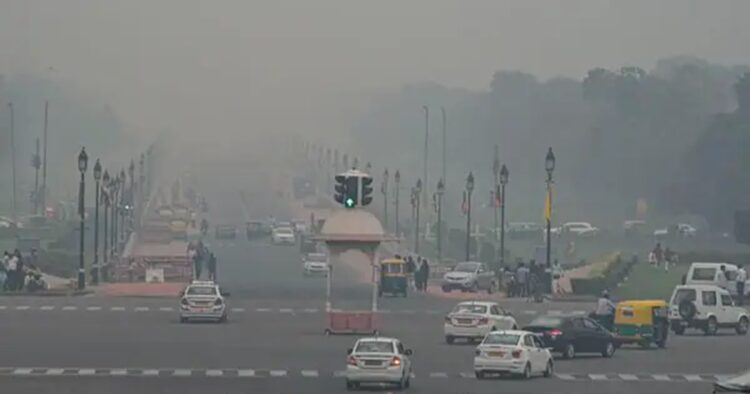In the latest World Air Quality Report by IQAir, Bharat has been ranked as the third most polluted country in 2023, following Pakistan and Bangladesh. The report reveals that Bharat’s annual PM 2.5 concentration stood at 54.4µg/m3, compared to Pakistan’s 73.7µg/m3 and Bangladesh’s 79.9µg/m3.
This represents a significant deterioration from previous years, as in 2022, Bharat was the eighth most polluted country with an annual PM 2.5 average of 53.3µg/m3, and in 2021, it recorded 58.1µg/m3. The report draws on data from over 30,000 air quality monitoring stations across 7,812 locations in 134 countries, territories, and regions.
Bharat’s capital, New Delhi, emerged as the most polluted capital city globally, with an annual PM 2.5 concentration of 92.7µg/m3. Within Bharat, Begusarai and Guwahati were identified as the most polluted cities, with concentrations of 118.9µg/m3 and 105.4µg/m3, respectively.
Furthermore, the report highlights that seven out of the world’s 50 most polluted cities are located in Bharat, signifying the severity of the air pollution crisis in the country.
Aidan Farrow, senior air quality scientist at Greenpeace International, emphasized the urgent need for local, national, and international efforts to address the air pollution crisis. He stressed the importance of monitoring air quality in under-resourced areas, managing transboundary haze, and reducing reliance on combustion as an energy source.
Anumita Roychowdhury, executive director of the Centre for Science and Environment, underscored the need for transformative multi-sector action under the National Clean Air Programme to address air quality challenges in rapidly urbanizing Bharatiya cities. She called for stronger strategies to control PM2.5, which predominantly stems from combustion sources.
Despite global efforts to combat air pollution, only seven countries, including Australia, Estonia, and Finland, met the World Health Organization’s annual PM 2.5 average of 5µg/m3 or less. The report serves as a stark reminder of the enduring global health crisis posed by air pollution and the imperative to implement effective solutions.

















Comments